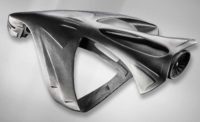MOLINE, IL—According to a CNBC interview with Jahmy Hindman, Senior Vice President & Chief Technology Officer of John Deere, Deere sees AI — specifically computer vision and machine learning — as essential to helping farmers address challenges like population increase and constantly changing weather conditions. According to Hindman, computer vision helps farmers see beyond human capacity, and machine learning helps them make more accurate decisions at a tremendous scale.
Hindman: The best example of this is our See & Spray technology. To keep plants healthy, farmers must kill weeds because they steal the vital nutrients plants need to grow into a healthy crop. Before AI, farmers had to spray the entire field to get rid of the weeds. But today, See & Spray can detect where every weed is in the field and apply herbicide only where it’s needed. And the machine continues to teach itself with images collected to become even more accurate in new scenarios, such as new field conditions, different plant growth stages, and plant diseases.
As AI continues to evolve, we’ll create smarter, more efficient, and more automated machines. They will help farmers care for every plant in every square foot of their field. It will make every job on the farm more productive and profitable. AI will also help us reach our goal of creating a fully autonomous production cycle for corn and soybean farmers by 2030. This means crops can be planted, sprayed, and harvested with autonomous technology. To reach this goal, we’ll continue deploying AI — along with robotics, sensors, data, and connectivity — to meet our customers’ most pressing needs.
Importantly, we’re also developing these solutions for machines already in the field to make them more productive. An example of this is the ability to retrofit See & Spray technology onto a sprayer built in 2018. With this approach, farmers with older machines can benefit from the newest technologies at a lower upfront cost and pay only for what they need through a “solutions as a service” model. This makes it easier for farmers to adopt and implement new technologies.
CNBC: Apart from some of the obvious benefits to farmers themselves, what are some of the global implications of these technological advances? Thinking of things like decreasing food insecurity in places where growing is particularly difficult, reduced carbon footprints, water conservation.
Hindman: The global population is expected to reach 10 billion by 2050, and as diets improve, farmers must double crop production to provide enough food for everyone. But with constantly changing environmental conditions, it is harder for farmers to depend on past knowledge and experience. And, global agriculture employment has declined over the past decade, down to 26% of total employment in 2021 compared to 43% in 1991. So, farmers have more work to do with less predictability and less help.
However, farmers are the original stewards of the land and know it is important to protect land and resources for future generations. Technology helps them meet current demands without sacrificing sustainability. Going back to See & Spray, since farmers can precisely spray weeds rather than their entire field, they reduce herbicide use by approximately 66%. Similarly, farmers can reduce starter fertilizer use by 60% by using sensing technology during planting. Just looking at corn production, fertilizer accounts for a large portion of total greenhouse gas emissions. By integrating technology with agriculture machines, we’re seeing an immediate, measurable impact on our environment.
CNBC: The adage that “every company is a tech company” has never felt more apt. Talk to us about your approach to recruiting, hiring, and retaining talent? What’s the pitch to data scientists, coders, and software engineers who might otherwise be looking at Big Tech jobs? Why John Deere?
Hindman: Technology, like AI and autonomy, isn’t a new concept at Deere. It is essential and already in fields with farmers today. But that’s only possible because of our heavy investment in innovation and our commitment to hiring and working with the best tech talent. That’s what makes recruiting and developing diverse teams of talent essential to our strategy and core values. It’s also what drives us to be an engineering and data-centric organization.
For data scientists, software engineers, and other tech-centric workers considering their next career move, I recommend pursuing a job in agriculture technology – and specifically at Deere – because it’s an opportunity to create something that benefits everyone in the world. You can innovate with existing technologies like IoT, connectivity, robotics, and sensors, or you can get ahead of the technology curve and bring new use cases to life. Regardless of what you’re working on, you’re reminded of our purpose at every meal.
Source: How Deere is preparing for a fully autonomous farm by 2030 by Kiley Lambert


